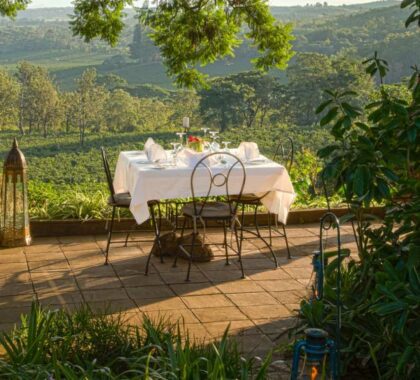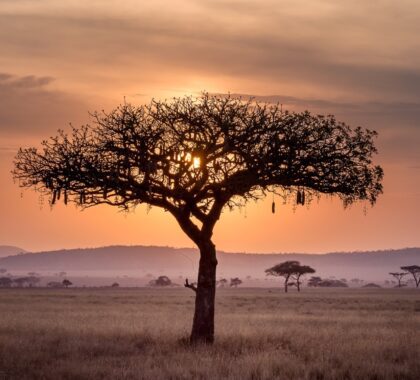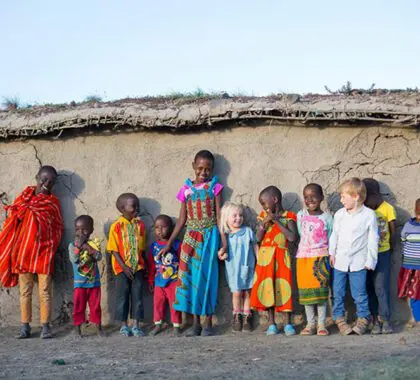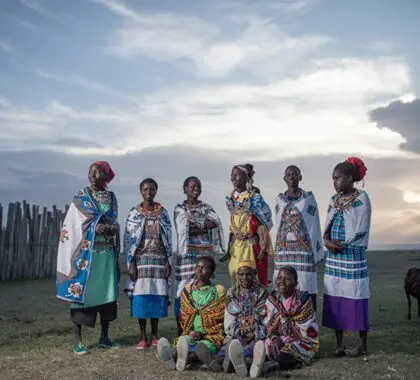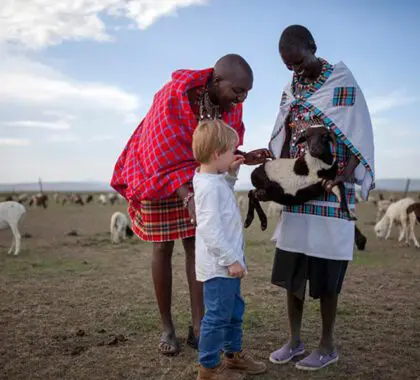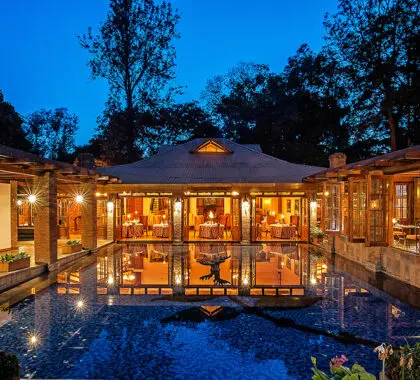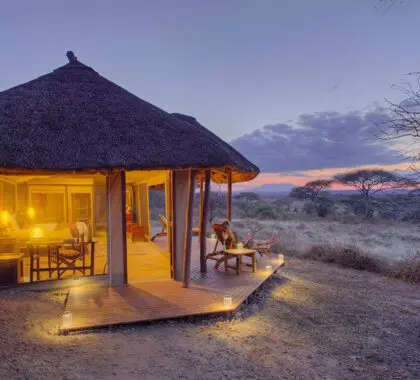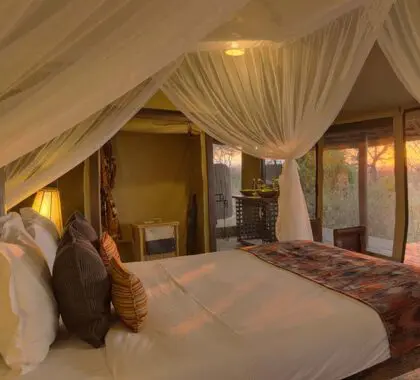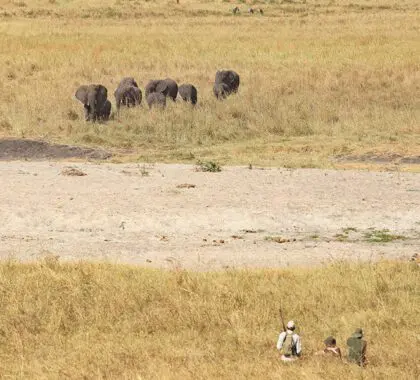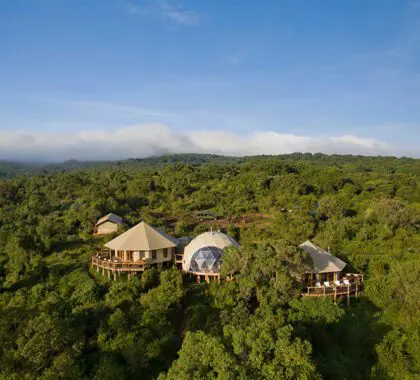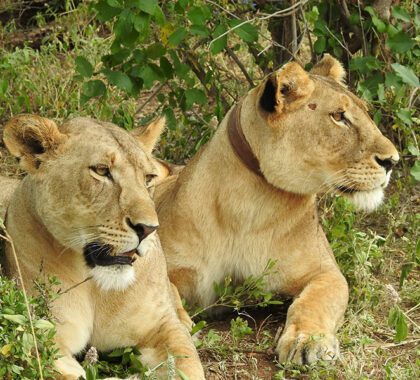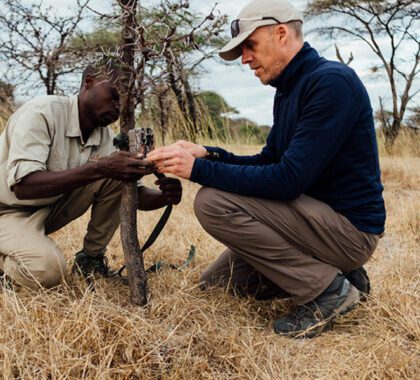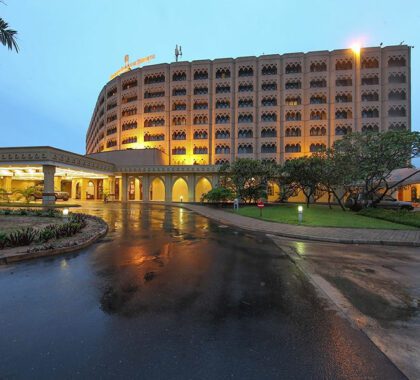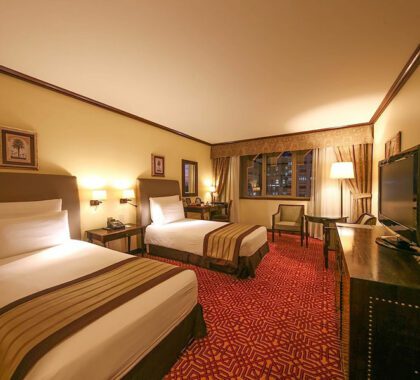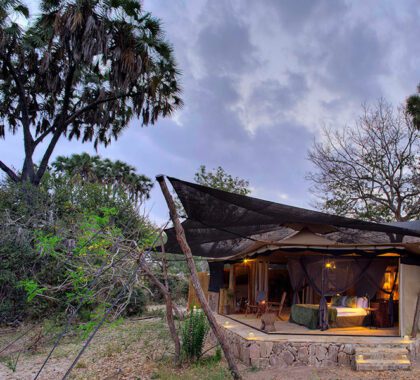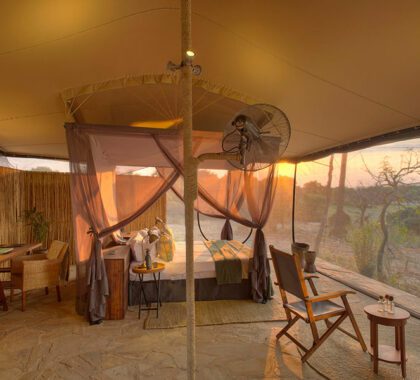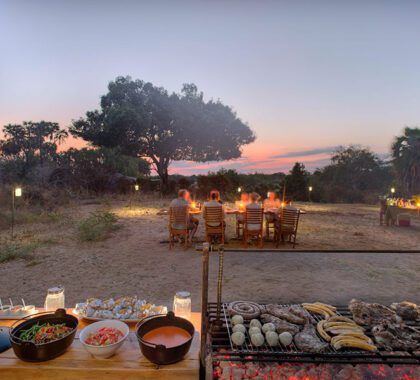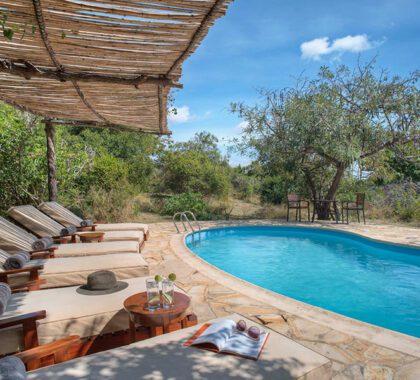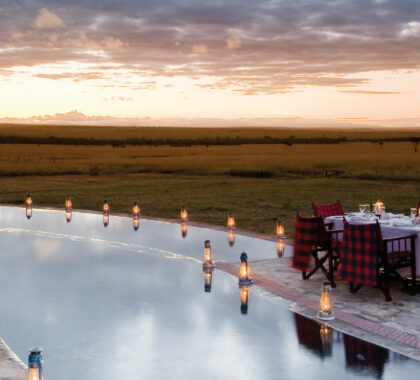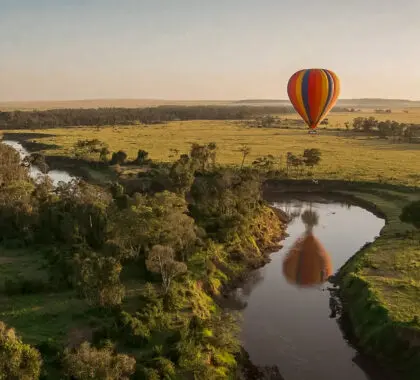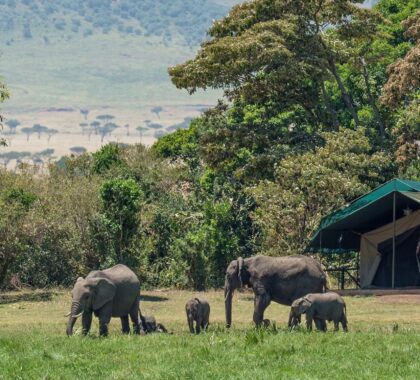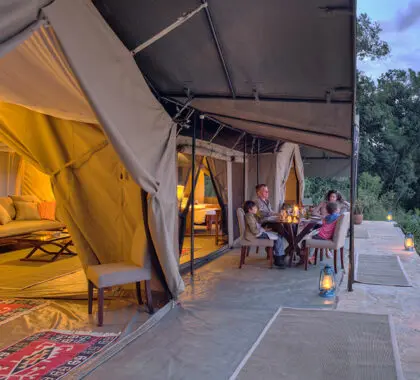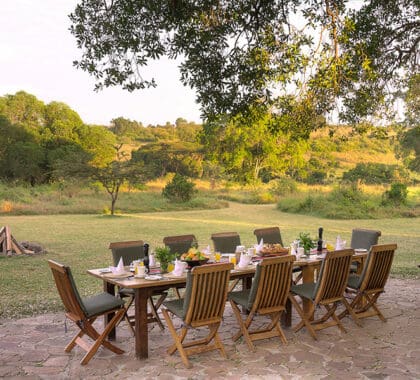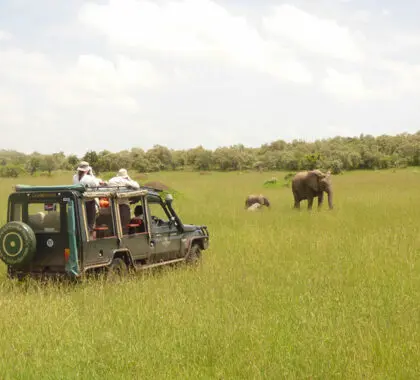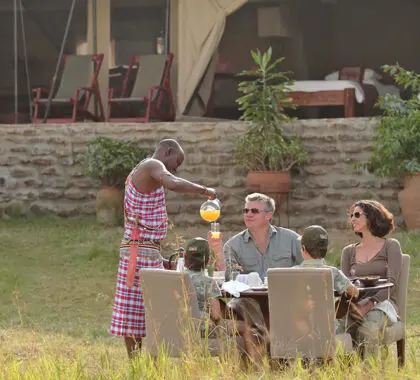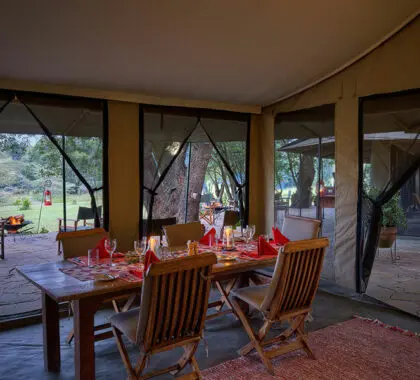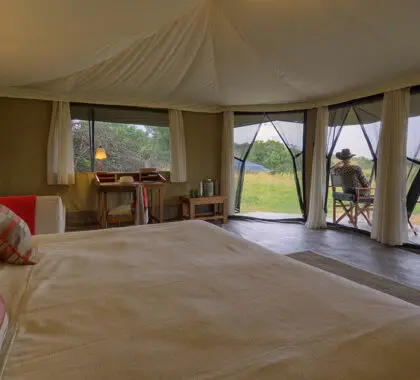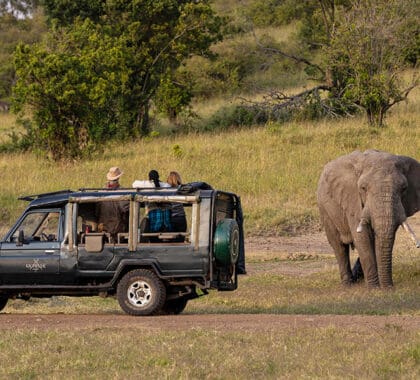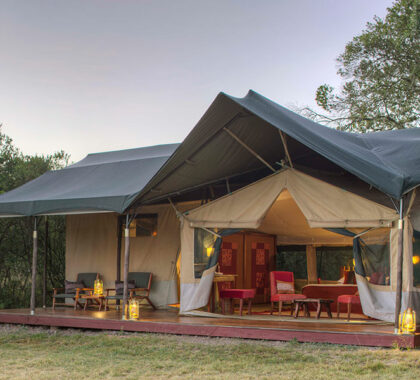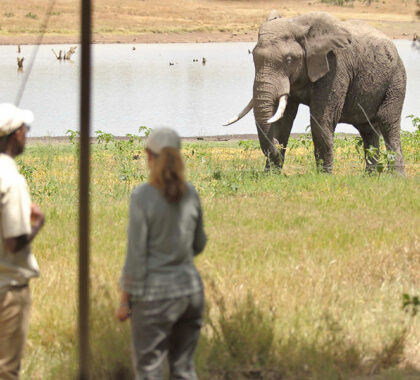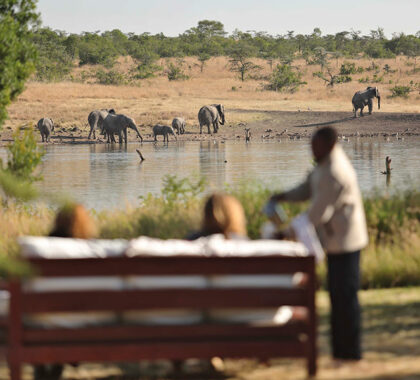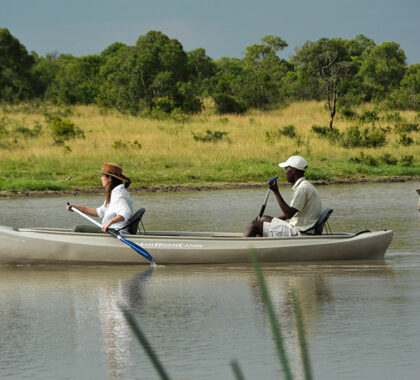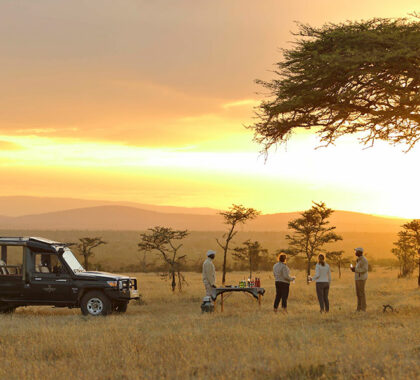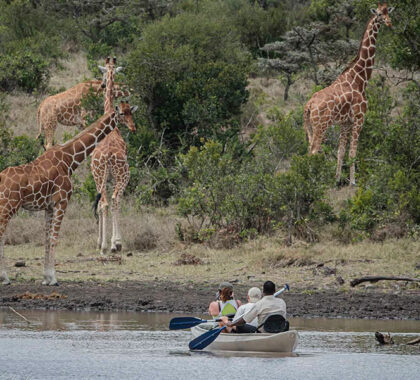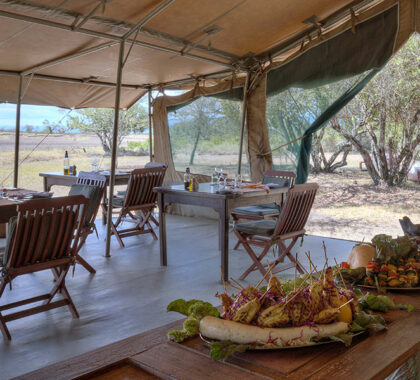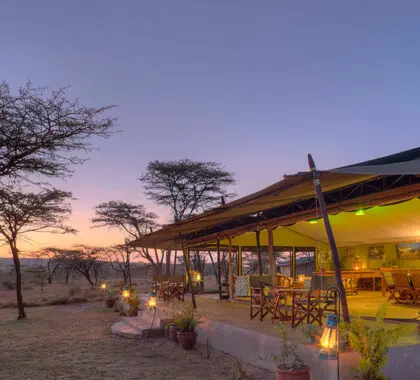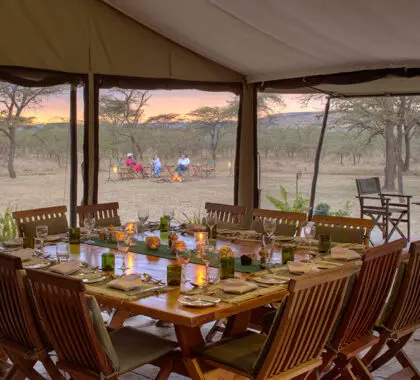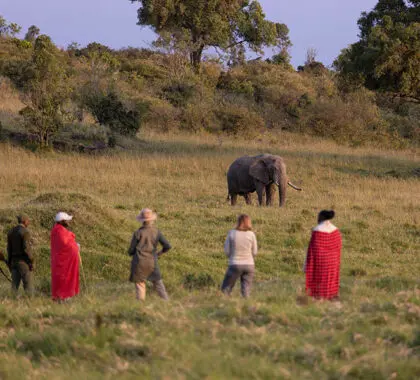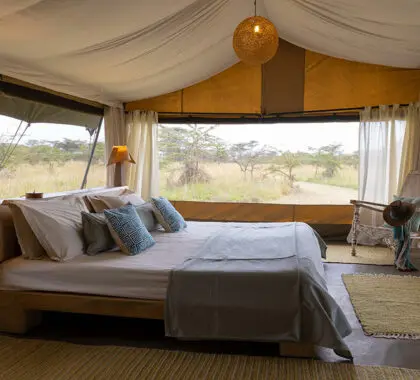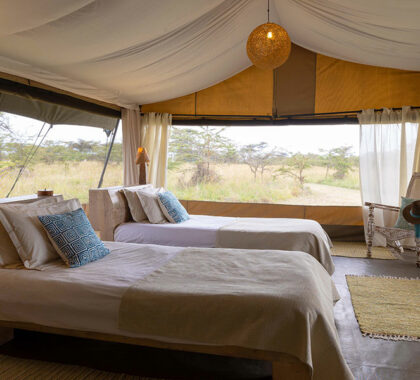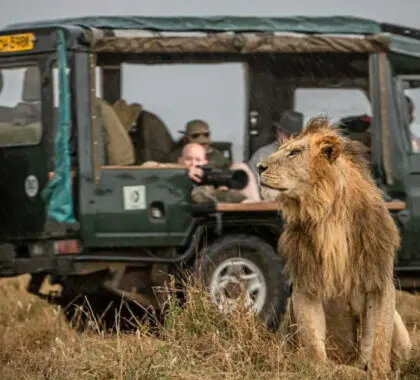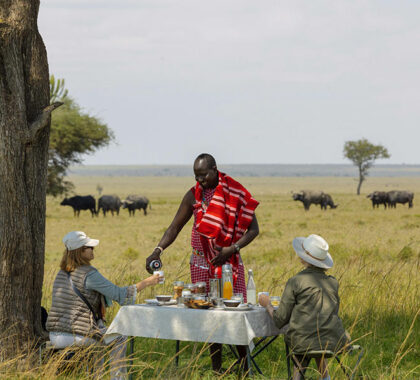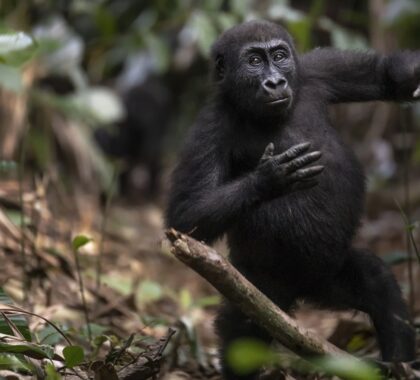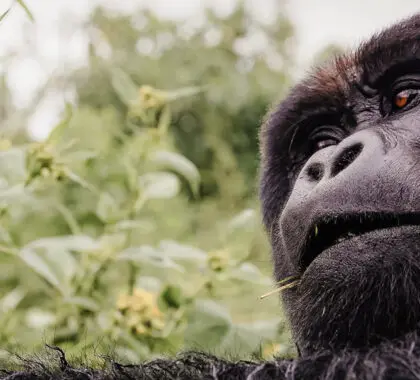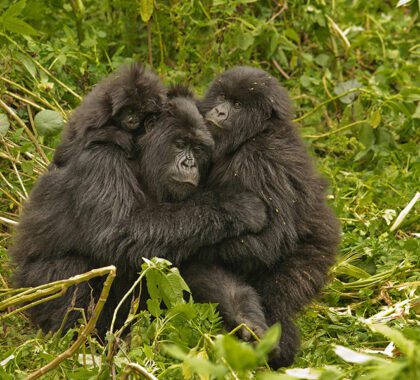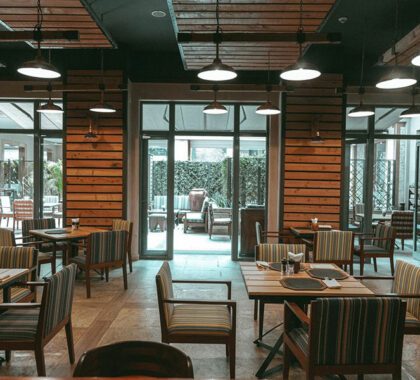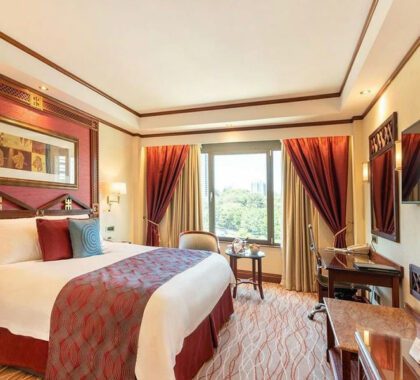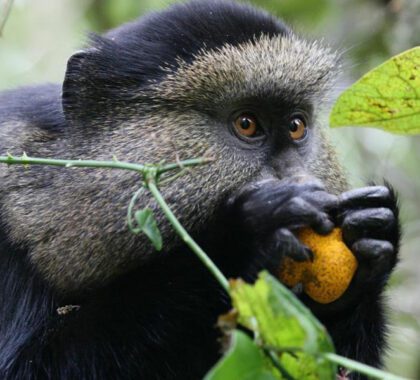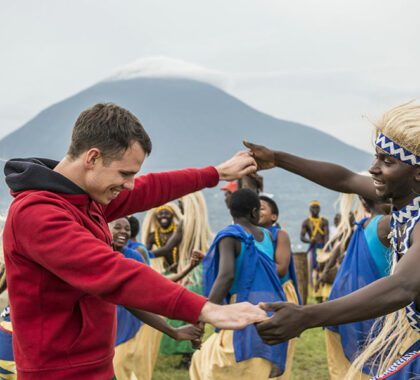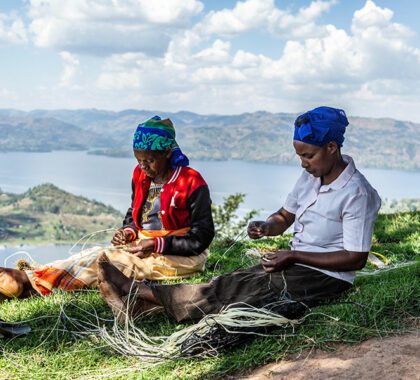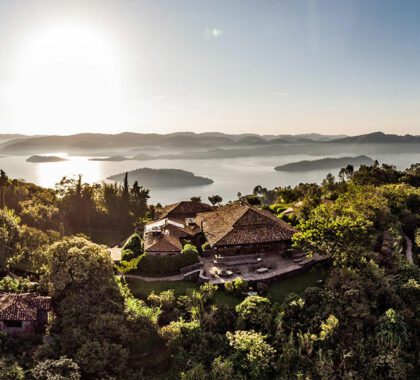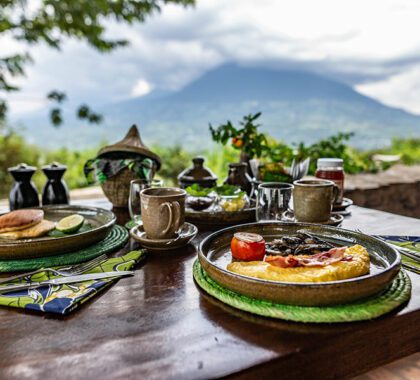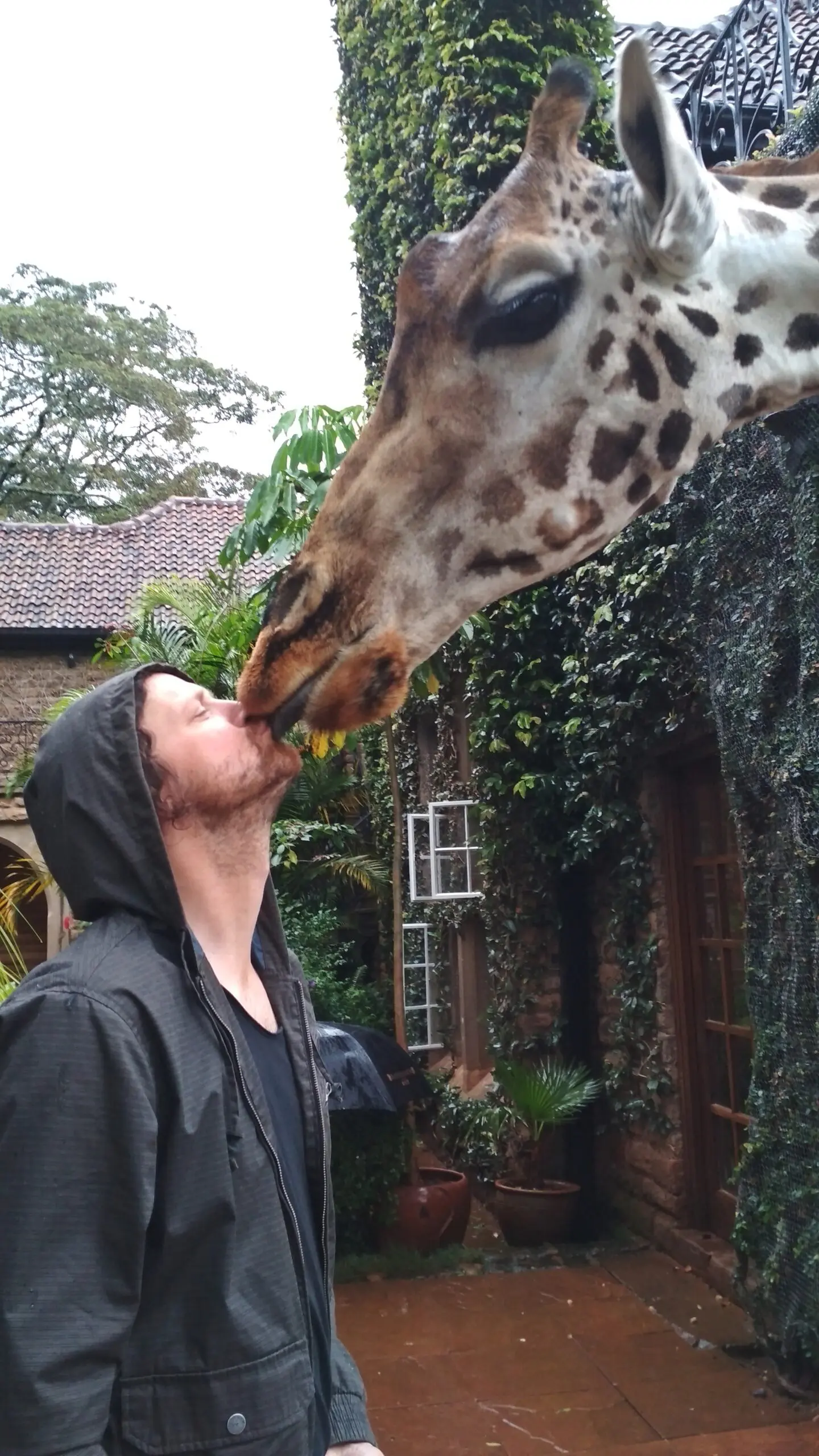Estimated reading time: 17 minutes
We believe that the most effective and immediate way to make a positive impact on wildlife conservation and community development is to go on safari. Through paying conservation fees – a tariff worked into the cost of your safari that's collected by our partners and transferred to indigenous landowners – you directly finance conservation and give communities (like the Maasai and Samburu) a tangible incentive to protect East Africa’s beautiful flora and fauna.
Also, booking your safari at the top eco-friendly lodges and camps in East Africa help create jobs for local community members. COVID-19 had a devastating impact (hopefully temporary) on tourism and the local communities that rely on it for financial support.
Ecotourism in East Africa will play a vital role in the recovery of safari travel, now more than ever. And by going on a sustainable safari, you have the opportunity to give back. So, if you’re considering a safari with a purpose, we’ve rounded up some of our favourite eco-friendly lodges in East Africa…
Top Eco-Lodges in Tanzania
Singita Sasakwa Lodge
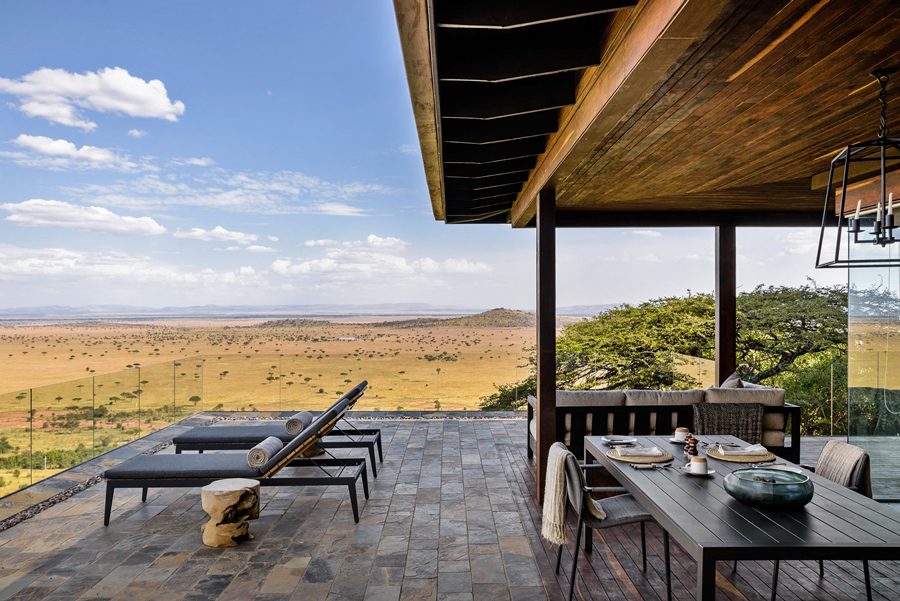
The Singita Grumeti Reserve is contiguous with the Serengeti National Park and is an integral part of the Serengeti-Mara ecosystem. In 1994, the Tanzanian government created the reserve to protect the path of the annual Wildebeest Migration, and granted the Grumeti Fund – a non-profit organisation that carries out vital wildlife conservation and community development programs – the right to manage the reserve from 2002.
In 2006, Singita became the Grumeti Fund’s conservation partner, and some of their combined successes include:
- The recovery of species like buffalo, wildebeest and elephant in the region.
- Carrying out the largest, single relocation and reintroduction of critically endangered eastern black rhino.
Sasakwa Lodge is one of Singita’s five eco-friendly lodges and camps in the Grumeti. This turn-of-the-century-style manor house pays homage to the romantic grandeur of safari’s bygone era. Perched on the slopes of Sasakwa Hill, it delivers breath-taking views over the Serengeti’s endless plains.
Singita boasts some of the top eco-friendly lodges in East Africa. Their lodges in the Serengeti are front runners in wildlife conservation, community development and sustainable tourism through programs like:
- Carbon offsetting – special levies allow guests to mitigate the impact of emissions.
- Renewable energy – almost all geysers (hot water cylinders) at Singita’s Serengeti lodges are solar-powered.
- Local and sustainable food – fresh, organic and seasonable produce is sourced from local and humane farmers.
- Waste reduction – food waste is composted on site and used in landscaping or gifted to community farmers.
- Scholarships – awarded for secondary school, vocational studies and university education in the conservation and tourism sectors.
- Serengeti Girls Run – an annual, all-women race through the Grumeti in which women from across the world run for the empowerment of Tanzanian women.
Usangu Expedition Camp
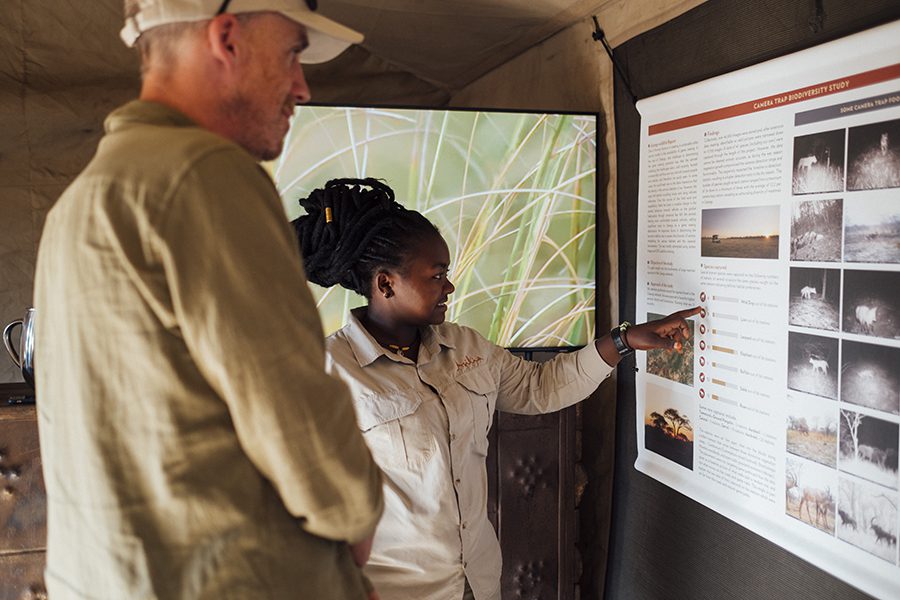
Usangu Expedition Camp is an authentic, seasonal camp (open from June to November each year) that is situated in the remote and beautiful location of Ruaha National Park – within the Usangu Wetlands. With expert, private guiding, a wide range of safari activities, and a strong emphasis on conservation, it promises an immersive experience. It forms part of the Asilia Africa collection, a group of exceptional properties throughout East Africa.
It is here that you will learn from environmentalists and conservation researchers about their inspiring projects to protect this land and the species that inhabit it:
- Douglas Bell Eco Research Station – this is the central hub for all research and conservation efforts that take place within the Usangu Wetland. You will engage with researchers at the station to learn more about their efforts. Experiences do vary slightly depending on which researchers are on the ground at any given time.
- Telemetry tracking – you can join researchers for a half-day activity of tracking collared animals, using sophisticated radio telemetry to locate them. Collared species differ over time depending on advancing research but usually focus on key species in the area such as lion, wild dog, roan and sable antelope.
- Camera traps – when you arrive at the camp, you will have the opportunity to take a camera trap and place it near or around the tent. On the last afternoon of your stay, you can see what images were captured, which are loaded into the Predator ID Hub at the research station for identification and tracking.
Chem Chem Lodge
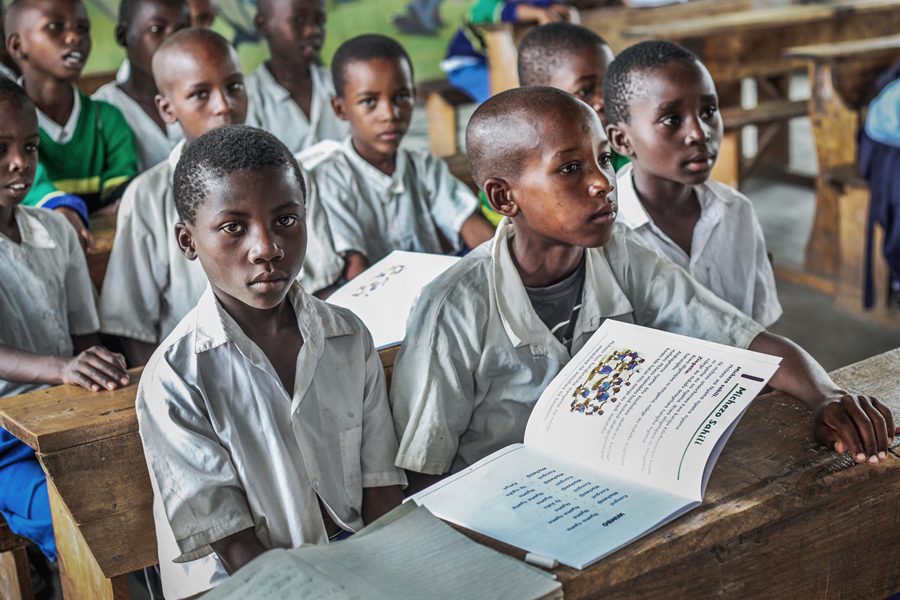

Chem Chem Lodge is an elegant and intimate property situated in a private concession between Tarangire and Lake Manyara National Parks. Not only do the owners manage and operate Chem Chem to ensure guests receive personal attention, but they also share a deep love and respect for Tanzania’s delicate ecosystem.
The non-profit Chem Chem Association was founded to give guests, donors and friends the opportunity to help foster Chem Chem’s commitment for a sustainable future through community outreach and conservation programs like:
- Human-wildlife conflict resolution – educating local communities about the ecological and economic importance of conservation, and implementing pro-active interventions to reduce conflict.
- Economic empowerment – supporting Village Community Banks (mutual savings banks) that enable low-income households to access basic financial services on a sustainable basis.
- Education – supports and maintains the infrastructure of local public schools, and provides educational materials and scholarship programs.
- Health – advocates for the wellbeing of people with disabilities and facilitating donations like wheelchairs.
Fundu Lagoon
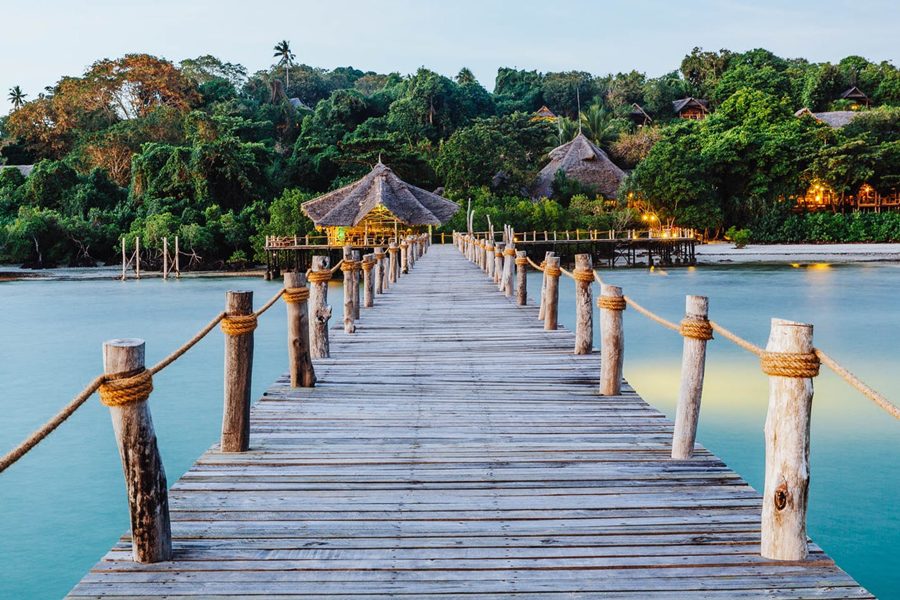

This rustic resort is located on Pemba Island, just off the south-western coast of Zanzibar. Boasting a gorgeous private beach, Fundu Lagoon is only accessible by boat and is one of the best coastal eco-lodges in Tanzania.
When Fundu Lagoon was developed in the late 90s, the aim was to have as little impact on the pristine landscape, and to only work with local resources and craftsmen.
Since then, this eco-lodge in Tanzania has been at the forefront of developing a sustainable style of ecotourism that works closely with local communities to promote Pemba Island’s conservation and environmental management programs.
Fundu Lagoon places great importance on local communities being able to benefit from tourism. The lodge works closely with neighbouring villages to help:
- Improve facilities for education and health care.
- Find innovative and sustainable solutions to meet local energy needs, minimising the impact on the environment.
- Provide boat transport when medical emergencies arise.
If you’re looking for an unforgettable post-safari experience with magnificent beaches, unspoiled scenery and warm-hearted people, then look no further than Fundu Island. The area is also one of the top five scuba diving destinations in the world.
Chumbe Island Coral Park
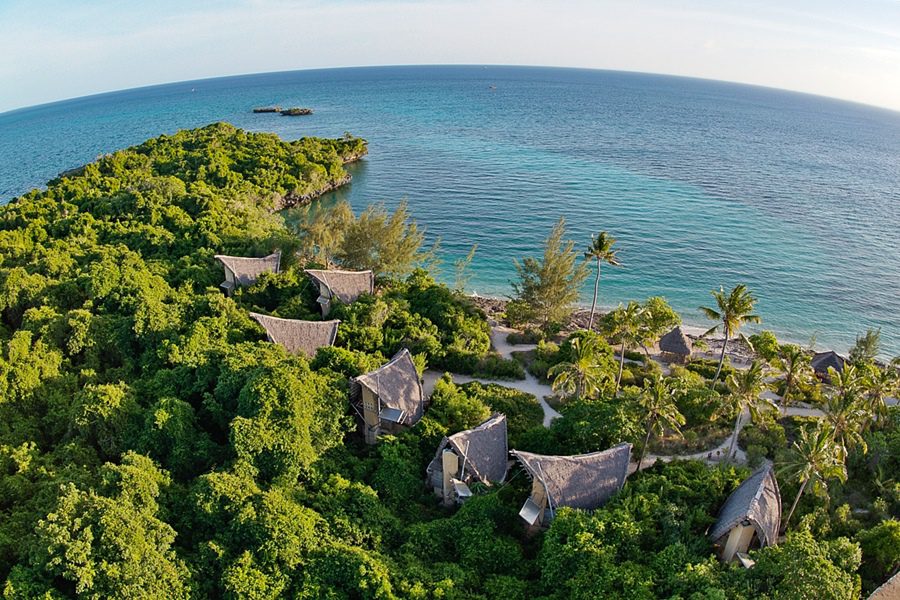

Situated in a Marine Protected Area off the coast of Zanzibar, Chumbe Island Coral Park is set in the heart of an award-winning private nature reserve. This boutique eco-lodge in Tanzania offers accommodation in unique bungalows situated right on the beach.
Upon its inception, Chumbe Island Coral Park recruited former fishermen from neighbouring villages and provided them with training to become park rangers. They played a vital role in early outreach programs to raise awareness within the local communities about marine ecology and the sustainable management of natural resources.
Today, Chumbe’s strong ranger team patrols and monitors the reserve, uses non-confrontational and educational approaches to deter poaching, and guides visitors.
The nature reserve includes a coral reef sanctuary – the first gazetted marine park in Tanzania – and a forest reserve. Thanks to its protection, the reef is home to 90% of East Africa’s hard coral species, over 400 fish species, and is a vital feeding ground for green and hawksbill turtles.
The forest reserve harbours highly specialised flora that has developed to survive without any groundwater – the bedrock of the island comprises fossilised coral that is unable to store rainwater.
It’s also a sanctuary for a plethora of birds, rare and endangered species like Ader’s duiker, and a healthy population of coconut crabs (the world’s biggest arthropod).
Chumbe Island Coral Park is one of the most state-of-the-art, eco-friendly lodges in East Africa and a diver’s paradise.
Jongomero Camp
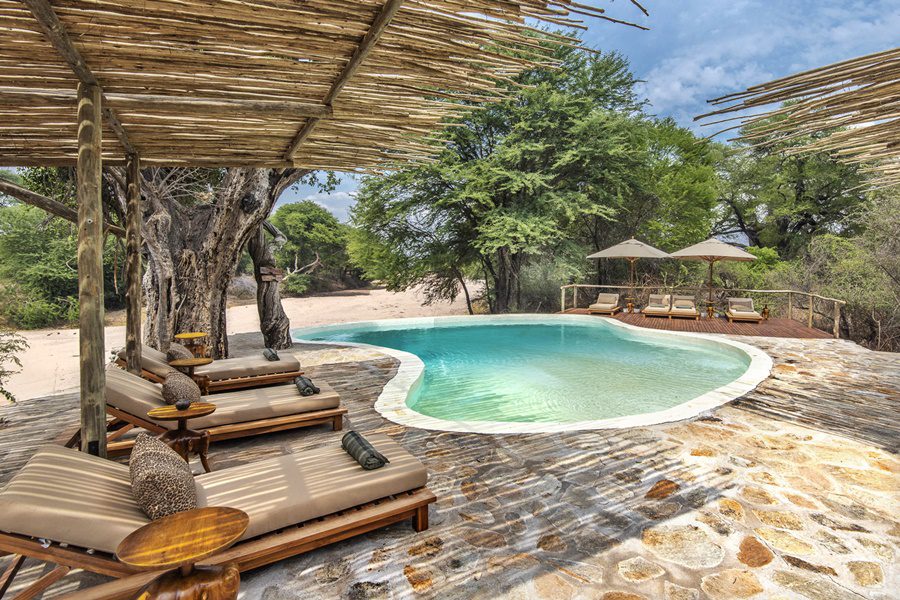

The enchanting Jongomero Camp is nestled beneath majestic trees along the banks of the seasonal Jongomero River. Situated in a remote corner of Ruaha National Park, this camp is ideal for guests seeking an authentic African adventure.
Ruaha National Park, the second largest national park in Tanzania, holds a remarkable significance due to its location in a unique transition zone where the Eastern and Southern biomes converge. This creates an extraordinary abundance of wildlife, plants and birds. The park boasts over 570 bird species (half of Tanzania’s bird population), making it one of Africa’s premier birding destinations. Ruaha is also home to one of the biggest elephant populations in any East African park. Buffalo herds gather in impressive numbers, alongside other big game like giraffe, eland, hippo, crocodile, lion and leopard. Additionally, it ranks second only to Nyerere National Park (formerly Selous Game Reserve) for East Africa’s largest population of wild dogs.
Jongomero strives to prioritise eco-friendliness without compromising its guests’ experience. This commitment is reflected in various initiatives like installing:
- A state-of-the-art solar inverter system that ensures 24-hour power and hot water for guests, eliminating the use of noisy generators.
- A water filtration system for drinking water, eliminating the need for single-use plastic bottles.
Additionally, the camp has implemented a comprehensive waste management system, ensuring that all recyclable materials are properly separated and sent for recycling in Dar es Salaam.
Jongomero prioritises hiring individuals from the local communities and providing them with extensive training and new skills. The camp also actively sources supplies from local communities. This not only helps reduce Jongomero’s carbon footprint, but also provides a consistent source of income for local growers and merchants. The camp sponsors a farming project by providing seeds, equipment, pumps, and pipes to enable them to cultivate vegetables specifically for Jongomero.
Top Eco-Lodges in Kenya
Angama Mara
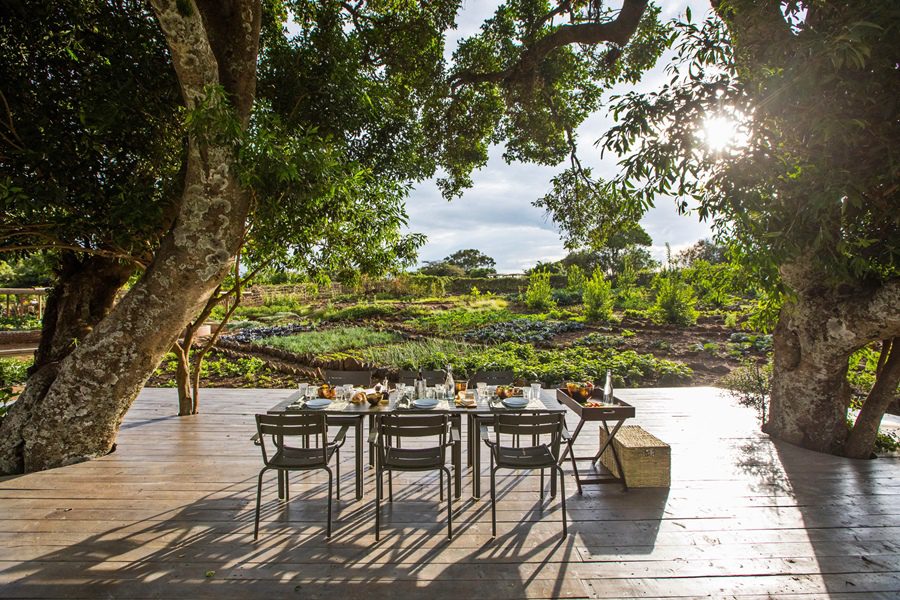

Arguably one of the top eco-lodges in Kenya, this remarkable owner-run safari property was founded on a deeply embedded principle: running a profitable business to make a meaningful and sustainable difference to its neighbouring communities, and the Masai Mara wildlife. Each guest at Angama Mara contributes a donation of USD 10 per night to the Angama Foundation.
The Angama Foundation is active in three fields of work:
- Education – developing scalable programs that benefit several schools in the area, like building desks or providing books and food.
- Healthcare – constructing an on-site clinic to provide medicine and skilled medical advice to Angama’s guests, staff and surrounding communities.
- Conservation – ensuring the longevity of the Mara Triangle through efforts like the mitigation of human-wildlife conflict, protecting birds of prey, and safeguarding rhino, elephant and lion.
A highlight of any stay at Angama Mara is experiencing its astonishing shamba (meaning ‘vegetable garden’ in Swahili). Growing and supplying fresh produce for mouth-watering meals in the middle of the Mara is a challenging task, but the lodge’s shamba team has mastered it.
From private shamba-to-table lunches in the garden to nocturnal honey harvesting missions and witnessing the daily chicken run (every morning Angama’s brood fly the coop and head for their favourite eatery: the compost heap), this extraordinary veggie garden is a much-loved experience for Angama’s guests.
Porini Rhino Camp
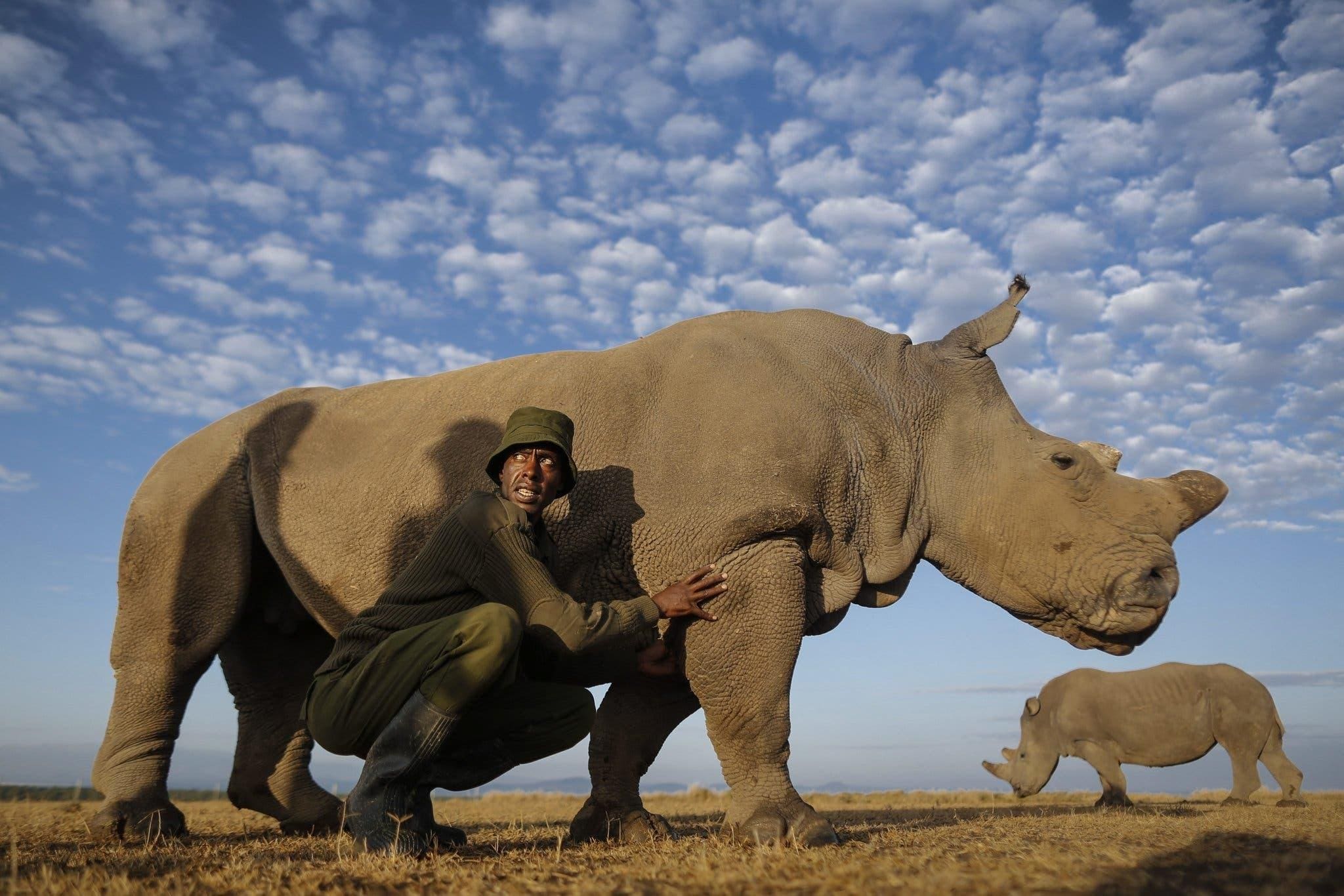

Rhino Camp is part of the Porini Camps collection, a selection of intimate, high-quality safari camps located in exclusive conservancies in some of Kenya’s best wildlife areas.
A conservancy is a very specific form of land and wildlife conservation, whereby landowners enter into lease agreements with safari operators. This means that thousands of small-scale farmers and residents who own small parcels of land come together, pool their properties, and enter contracts with safari operators in return for monetary compensation, and other assistance like educational and healthcare programs, or livestock and grazing management.
The importance of tourism in conservancies:
Porini comprises some of the most authentic eco-friendly lodges in East Africa, all run on environmentally sound principles designed to have a minimal impact on the environment. Porini’s camps do not consist of any permanent structures and make use of solar power for electricity and eco-friendly charcoal for heating water.
Porini Rhino Camp is located within the Ol Pejeta Conservancy, a remarkable conservation area between the Aberdares and Mount Kenya. Ol Pejeta is home to two of the world’s last remaining northern white rhinos and is a sanctuary for critically endangered black rhinos.
The conservancy is not only a role model for rhino conservation in East Africa, but is also home to the Sweetwaters Chimpanzee Sanctuary – a refuge for chimpanzees that are rescued from the black market.
Saruni Samburu
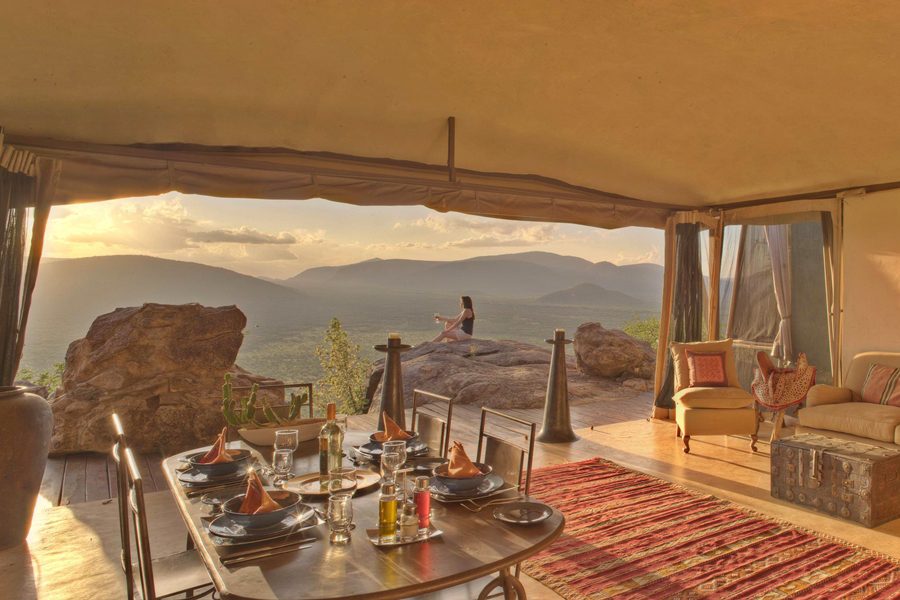

Saruni Samburu is a breath-taking property in the Saruni collection of lodges, located in the scenic mountains of the Kalama Conservancy that adjoins Kenya’s Samburu National Reserve.
Since 2003, Saruni has nurtured a close connection with the indigenous communities who own the areas where fauna and flora thrive. Saruni are among the founding members of leading community-run conservation organisations in Kenya that implement holistic land management policies like controlled cattle grazing and low impact tourism.
How community-based conservation and tourism protect Northern Kenya’s Samburu:
How you can make difference:
With the effect that COVID-19 had on safari travel, wildlife protection, and the welfare of the communities that depend on the income from tourism, Saruni have implemented the Adopt an Acre initiative.
Anyone can ‘Adopt an Acre of land’ in a conservancy via a direct donation (starting from USD 35) that will help fund land leases so that community members can continue receiving their rental income.
Saruni have also partnered with Seedballs Kenya to help regrow parts of the country. As a guest at Saruni, you can purchase a box of seedballs (seeds encased in fertile charcoal crusts) for USD 3 and throw them into degraded areas during your game drive – playing your part in regrowing Kenya’s indigenous trees and shrubs.
Saruni Samburu is one of the top eco-lodges in Kenya, offering guests exclusive safari experiences in partnership with the neighbouring communities.
Kicheche Mara Camp
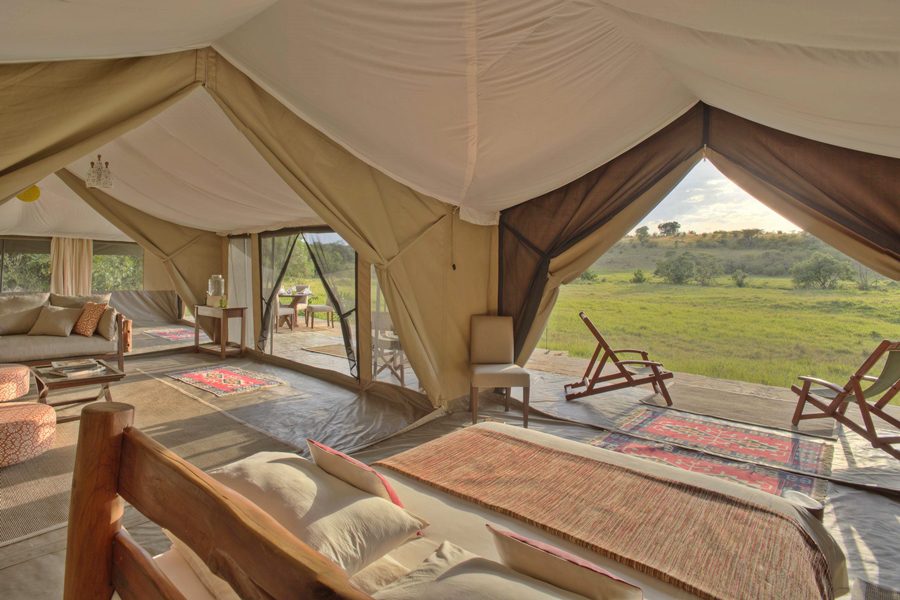

Kicheche Mara is an authentic tented camp situated in a prime game-viewing region of the Mara North Conservancy. It offers a friendly and relaxed atmosphere, and some of the best safari guides in the Masai Mara – all of whom have at least a silver-level rating from the Kenya Professional Safari Guides Association.
The Kicheche Community Trust was established to encourage the preservation of the environment while improving the welfare of local communities. The trust has partnered with the communities to support traditional and sustainable ways of living in harmony with the environment and wildlife through:
- Education – building and maintaining classrooms, sponsoring teachers, supplying schoolbooks and stationery, and sponsoring students to the Koiyaki Guiding School.
- Health and family care – donating medicines, medical books, water pumps, water tanks and solar power systems, and supporting local clinics and orphanages.
- Community empowerment – implementing revenue earning projects and self-help groups.
- Environment and conservation – a week’s safari with Kicheche helps to conserve 7 hectares (18 acres) of wildlife habitat annually by funding community leases through guests’ conservancy fees.
Kicheche Mara Camp
Activities Travellers Enjoyed
Kicheche Bush Camp
Activities Travellers Enjoyed
Ol Pejeta Bush Camp
![]()
![]()
From its origins as a working cattle ranch in Kenya’s Laikipia County to its current status as a trailblazer in conservation innovation, the journey of Ol Pejeta Conservancy is both enchanting and inspiring. Today, Ol Pejeta is the biggest black rhino sanctuary in East Africa and the only place on Earth where you can see northern white rhino – the last two surviving animals live here under 24-hour armed guard. The conservancy also holds the distinction of being the sole location in Kenya where one can see chimpanzees, as it provides a shelter dedicated to rehabilitating these rescued primates.
Not only is Ol Pejeta a wildlife conservation success story, it’s also committed to supporting the local communities residing in the vicinity – ensuring that wildlife conservation efforts result in improved education, healthcare, and infrastructure for future generations.
Some of Ol Pejeta’s wildlife conservation and community development projects include:
- Employing highly trained rhino protection squads, partnering with international veterinary experts, and ensuring data is gathered regularly on each individual rhino.
- Openeding the Sweetwaters Chimpanzee Sanctuary to provide a refuge for chimpanzees rescued from the black market.
- Protecting endangered wildlife in the conservancy with the help of Ol Pejeta’s K9 Anti-poaching Unit.
- Supporting surrounding communities by addressing key infrastructure issues that affect healthcare, education, energy and water.
- Supporting sustainable and environmentally friendly agricultural practices in the region, as well as managing human-wildlife conflict to ensure the survival of wildlife.
Ol Pejeta Bush Camp is a relaxed tented camp set along a narrow river and overlooks the yonder Ol Pejeta plains. A stay at Ol Pejeta Bush Camp provides an opportunity for guests to actively contribute to conservation efforts. There are various ways to get involved, such as assisting with canine training or assisting the research team by recording lion sightings.
Solio Lodge
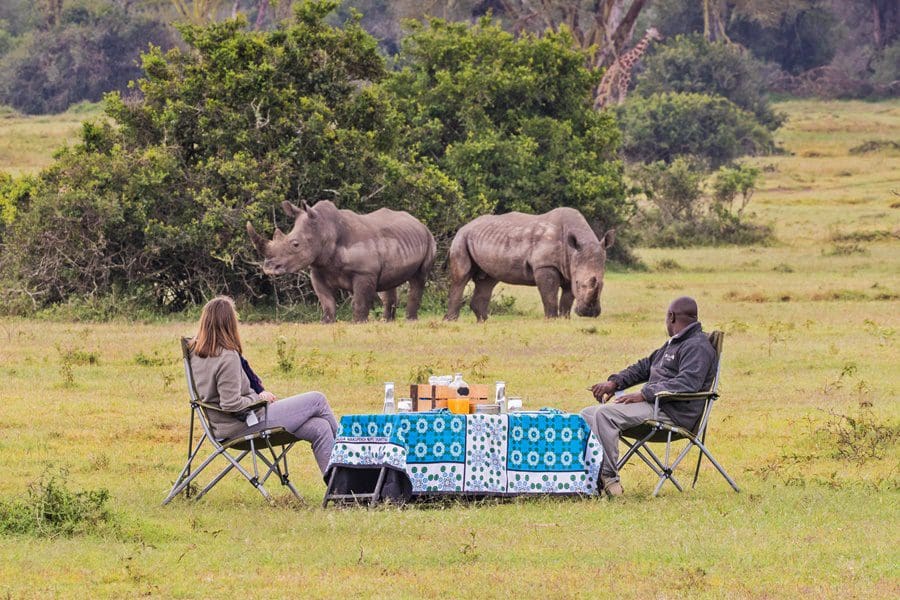

Renowned as a distinguished lodge in Kenya, Solio offers extraordinary and awe-inspiring rhino viewing opportunities. Nestled in a valley embraced by the majestic slopes of Mount Kenya and the peaks of the Aberdare Mountains, it stands as the sole guest accommodation within the remarkable Solio Game Reserve. This reserve has gained international recognition for its exceptional success as a private rhino breeding sanctuary, often affording visitors the remarkable sight of up to 40 rhinos at a time. The safari experience at Solio is unparalleled and exclusive, encompassing a large conservancy encircled by a vast 45,000-acre ranch.
In 1970, the introduction of black rhinos marked the beginning of Solio Ranch’s journey towards becoming the most prosperous rhino breeding sanctuary in East Africa. In response to the urgent need arising from rampant poaching, the Kenya Wildlife Service approached the ranch’s owner, requesting his assistance in temporarily providing shelter to five black rhinos that were left isolated. By 1980, Solio had become a haven for 27 rhinos originating from other regions within Kenya, along with a founding group of 16 white rhinos relocated from South Africa.
The rhino population at Solio thrived rapidly, and as other national parks and private game reserves enhanced their security measures, Solio became instrumental in translocating core rhino populations across Kenya, Uganda and Malawi. The Safari Collection, owners of Solio Lodge, have served as an exclusive tourism partner to Solio Ranch. Every guest staying at Solio Lodge plays a crucial role in contributing to the ongoing success of the Solio Rhino Sanctuary.
Lewa Wilderness Lodge
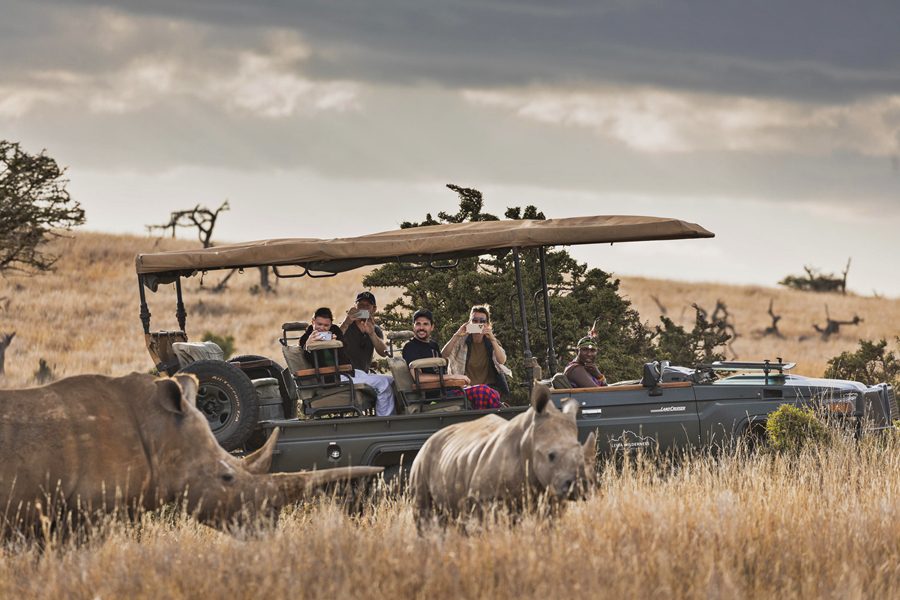

Nestled on the fringes of one of Kenya’s most exclusive wildlife and environmental conservation projects, this captivating lodge provides guests with a rare sense of being home away from home. Lewa Wilderness Lodge is committed to providing exceptional wildlife experiences that go beyond the traditional game drive. Guests are offered a range of extraordinary activities like guided nature walks, exhilarating scenic flights in a retro WACO bi-plane, and unforgettable horse- and camelback safaris.
When guests choose to stay at Lewa Wilderness Lodge, they contribute directly to the invaluable work of the Lewa Wildlife Conservancy. This organisation is celebrated for its innovative conservation initiatives, as well as its dedicated community development and education programs. With 62,000 conserved acres, the Lewa Wildlife Conservancy stands as a testament to dedicated conservation efforts. The abundance of wildlife within its boundaries is nothing short of astounding, featuring over 70 distinct animal species and a remarkable 350 bird species.
Some of Lewa Wildlife Conservancy’s conservation and community development successes include:
- Protecting around 12% of Kenya’s black rhino population – one of the most successful rhino protection programs in Africa.
- Protecting about 12% of the world’s population of unique Grevy’s zebra.
- Preserving elephant populations through dedicated and extensive protection measures.
- Sponsoring 18 schools (6,000 students) with the help of the Lewa Education Programme.
Governors’ Mugie House
![]()
![]()
This five-star, 100% solar powered private house is situated in the northern region of Mugie Conservancy, a privately owned wildlife sanctuary in Kenya’s Laikipia region. The conservancy not only embraces a multitude of meaningful community and conservation initiatives, but it also serves as a model for sustainable practices.
At the forefront of conservation efforts, Mugie Conservancy successfully strikes a balance between operating as a low-impact cattle ranch and preserving the delicate and thriving ecosystems that support abundant wildlife. By implementing cutting-edge grazing programs and empowering local communities through micro-economic assistance, Mugie Conservancy actively encourages community engagement and investment in shared conservation objectives.
Mugie Conservancy strives to foster greater community involvement and commitment to the conservancy itself, land management and conservation. These crucial efforts are realised by initiatives like:
- Community Cattle Program – rotational grazing and holistic land management system that’s less harmful to the environment and increases the value of the local community’s cattle before sale.
- Breeding Program – improving the community’s livestock quality through better genetics and artificial insemination services.
- Dry Season Grazing Program – allowing neighbouring communities to access defined grazing blocks within the conservancy during drought periods.
- Mugie SACCO – allowing community members who cannot afford a head of cattle to purchase a share in one.
Assisting with conservation efforts, the Mugie Bloodhounds are working dogs cared for by Mugie Conservancy rangers. Their primary objective is to provide support to Mugie and the neighbouring communities in combatting wildlife crimes, livestock and property theft, and apprehending trespassers on the Mugie property. Guests at Mugie House have the opportunity to visit these dogs and witness a simulated training exercise, showcasing the dogs’ remarkable ability to track scents with great precision. Contributions can be made towards the Mugie Bloodhounds to assist in covering the costs of food, veterinary bills and training, as well as the salaries of their handlers.
Top Eco-Lodges in Rwanda & Uganda
Singita Kwitonda Lodge
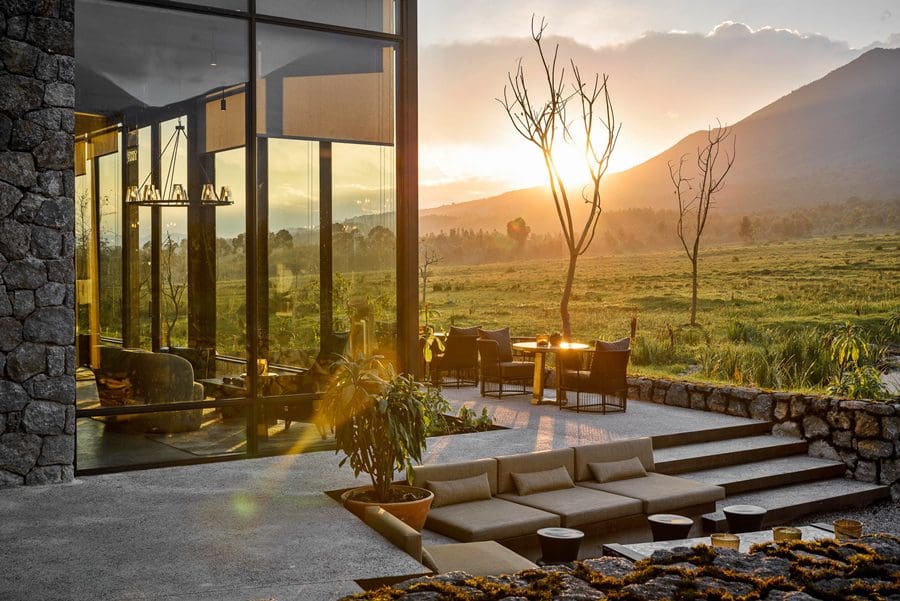

The magnificent Singita Kwitonda Lodge is set on the edge of Rwanda’s Volcanoes National Park and was designed with the utmost respect to its breath-taking location. One of the best eco-lodges in Rwanda, Kwitonda puts its guests within easy reach of a transformative gorilla trekking experience.
This eco-friendly lodge has a dedicated Conservation Room, an interactive educational space that’s managed by specialist conservationists. It provides guests with a unique perspective on endangered mountain gorillas and their natural habitat.
One of the biggest conservation success stories at Kwitonda is its on-site Akarabo Nursery. Established to help reforest, rehabilitate and maintain previously forested areas that were cleared for agriculture, the nursery has propagated and grown over 60 000 saplings to help sustain the natural habitat of endangered mountain gorillas. Within a year of opening Kwitonda Lodge in 2019, about 250 000 tree saplings were sourced from local community nurseries and replanted across the property.
Guests are encouraged to visit the nursery and plant trees on the property, leaving their legacy and playing a vital part in the ongoing reforestation program. And while you’re there, don’t miss a visit to the garden’s wonderful teahouse for a pot of fresh herbal brew!
Kyambura Gorge Lodge
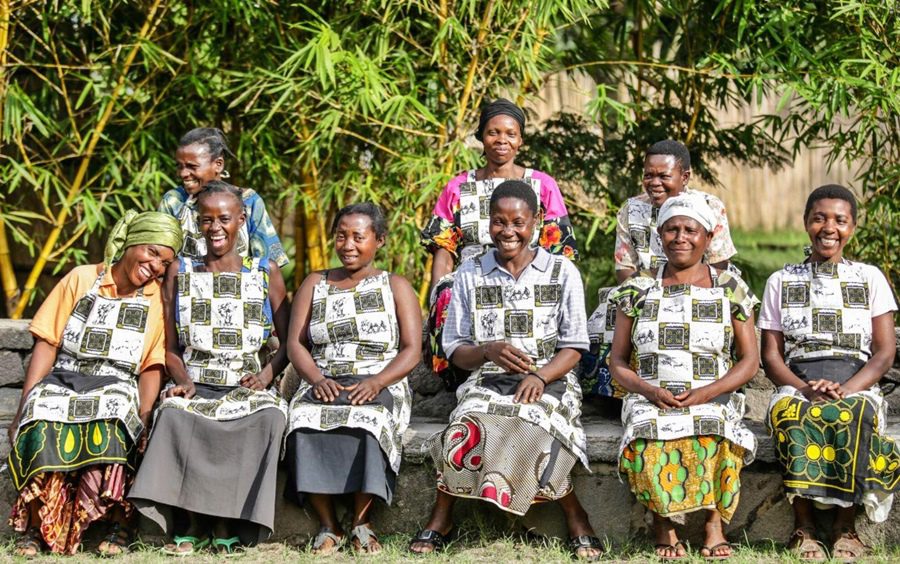

Set within a former coffee plantation and estate at the foot of the Rwenzori Mountains, Kyambura Lodge is the result of a sensitively restored coffee-processing and drying shed. This luxurious property is one of the top eco-lodges in Uganda and located on the edge of Kyambura Gorge, a sanctuary for endangered chimpanzees.
The lodge launched the Kyambura Gorge Eco-tourism Project in 2009 to safeguard the surrounding ecosystem. In recent years, the project was strengthened by the Volcanoes Safaris Partnership Trust, playing a vital role in the survival of Kyambura Gorge’s chimp population.
These entities assist Kyambura Gorge Lodge to work with local communities to promote sustainable ecotourism and conservation in one of Africa’s most important areas for primate and avian biodiversity.
Their initiatives include:
- Tree nursery and reforestation project – established a tree nursery and conservation outreach program that have planted over 5 000 trees in depleted areas.
- Beekeeper training and fences – provided local farmers with the necessary skills to become commercial beekeepers and set up hives to create fences around the farmers’ land, deterring elephants from destroying crops and reducing human-wildlife conflict.
- Kyambura Women’s Coffee Cooperative – provide vocational training to local women who commit to growing coffee organically, without the use of pesticides or chemical fertilisers. The coffee is sold to luxury safari lodges and served to guests.
Ready to Start Planning Your Safari With a Purpose?
Get in touch with one of our Africa Safari Experts to help tailor-make your stay at the best eco-friendly lodges in East Africa:

